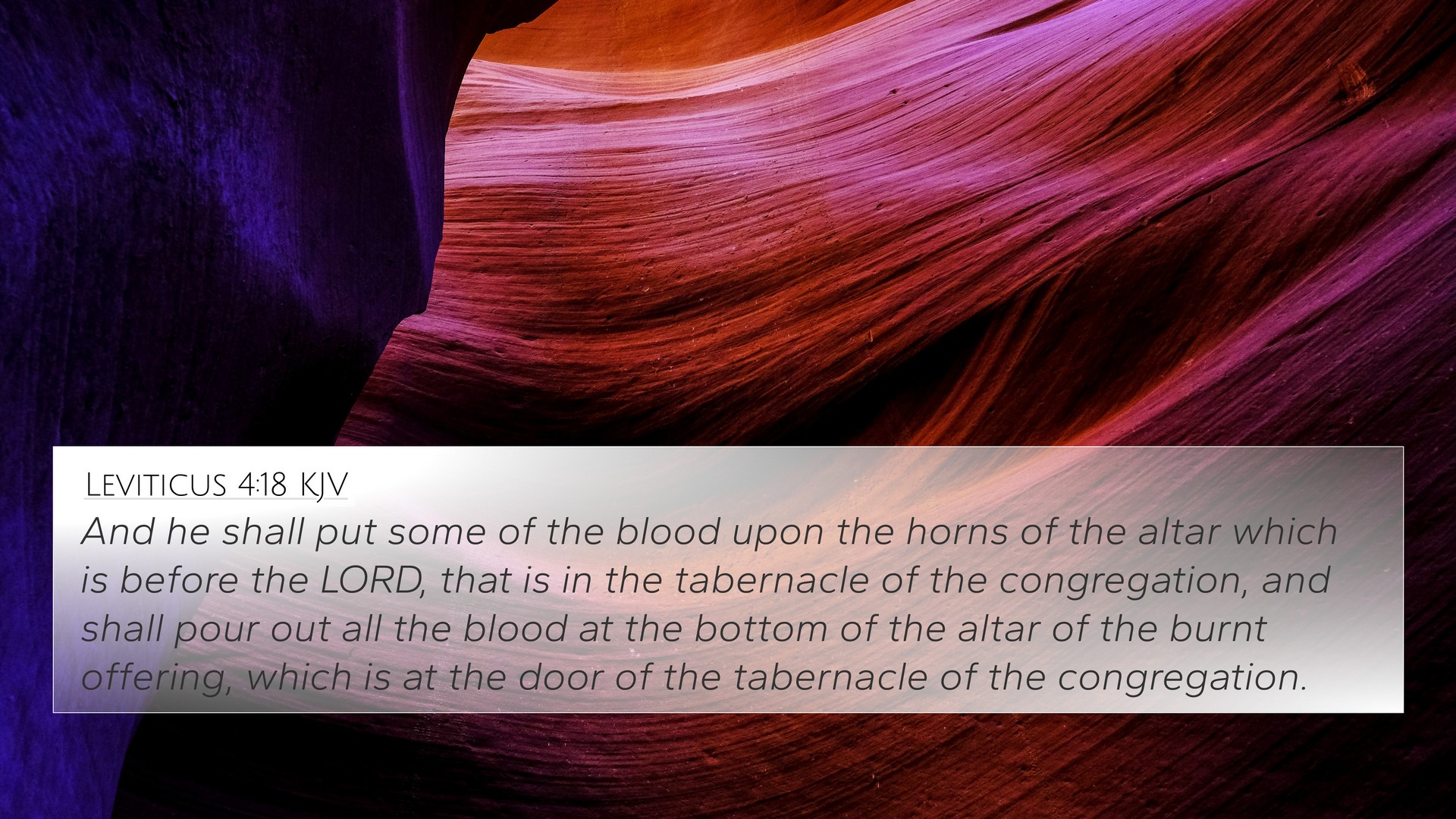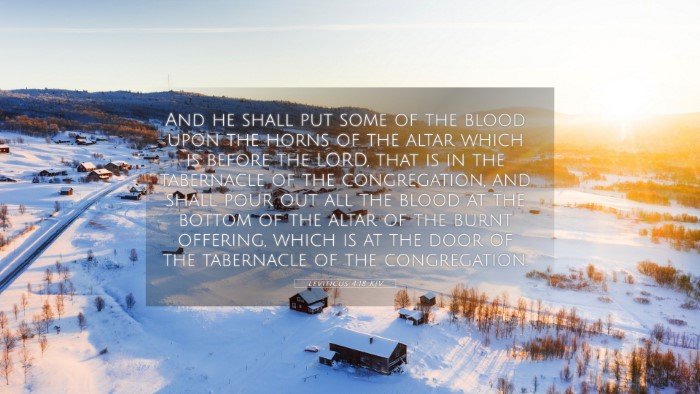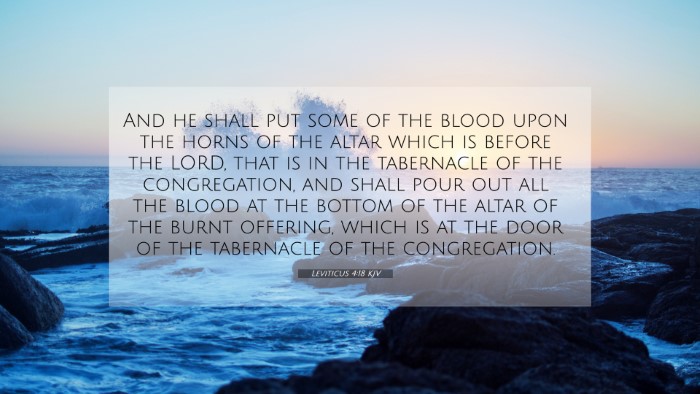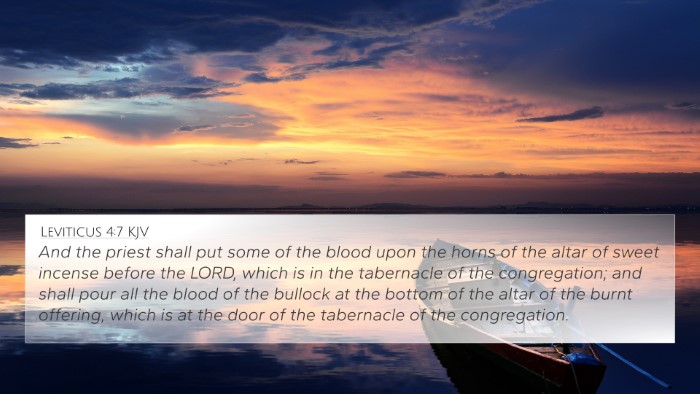Understanding Leviticus 4:18
Leviticus 4:18 states: "And he shall put some of the blood upon the horns of the altar which is before the Lord, that is in the tabernacle of the congregation, and shall pour out all the blood at the bottom of the altar of the burnt offering, which is at the door of the tabernacle of the congregation." This verse addresses the ritual of sin offerings within the context of Israel's covenant with God, illustrating the gravity of sin and the means of atonement.
Summary of Meaning
The act of sprinkling blood upon the horns of the altar represents a symbolic transfer of sin and guilt from the individual to the sacrificial animal. The altar, as a sacred space, signifies God's presence, and by placing the blood there, the worshipper seeks reconciliation with God. This act emphasizes the seriousness of sin and the need for purification.
Commentary Insights
-
Matthew Henry's Commentary:
Henry highlights the significance of blood in the sacrificial system as a means of atonement, stressing that it is only through the shedding of blood that forgiveness is granted. He notes that the horns of the altar represent strength and the power of the sacrifice to cover sin.
-
Albert Barnes' Notes:
Barnes reflects on the broader implications of this verse relating to Christ's sacrifice. He connects the Old Testament sacrificial system to the New Testament, indicating that just as blood was essential for atonement in the Law, the blood of Christ fulfills and completes this need.
-
Adam Clarke's Commentary:
Clarke emphasizes the detailed ritual instructions provided in Leviticus, underscoring the meticulous nature of the Law. He also draws parallels between this ritual and the concepts of mercy and forgiveness found throughout Scripture.
Cross-References
This verse can be cross-referenced with the following Scriptures, which enrich understanding through valuable connections:
- Exodus 12:7: Reference to the Passover lamb’s blood and its protective role.
- Leviticus 17:11: Discusses the significance of blood in atonement.
- Hebrews 9:22: Affirms that without the shedding of blood, there is no remission.
- Romans 3:25: Connects the concept of Christ as the propitiation through faith in his blood.
- 1 John 1:7: Speaks of the cleansing power of Jesus' blood.
- Isaiah 53:5: Prophetic understanding of the suffering servant bearing our iniquities.
- Matthew 26:28: Jesus' words about His blood establishing the New Covenant.
Thematic Connections
Leviticus 4:18 encompasses themes such as:
- Atonement: The process of reconciling with God through sacrificial offerings.
- Purity and Holiness: The call for God’s people to maintain purity in their relationship with Him.
- Divine Justice and Mercy: The balance of God’s judgment against sin and His provision for forgiveness.
- Foreshadowing of Christ: The sacrificial system foreshadows the ultimate sacrifice of Jesus Christ.
Conclusion
In summary, Leviticus 4:18 encapsulates critical theological concepts of sin, atonement, and the sacrificial system, serving as a vital link between the Old Testament sacrificial rituals and their fulfillment in the New Testament through Jesus Christ. Understanding this verse in conjunction with other Scriptures enhances one’s grasp of the Bible's overarching narrative of redemption and grace.
Further Study Recommendations
For those interested in deeper exploration, consider utilizing the following tools:
- Use a Bible concordance to find cross-references related to sin and atonement.
- Engage in cross-reference Bible studies that connect themes between the Old and New Testaments.
- Consult comprehensive Bible cross-reference guides that map interconnected verses.



